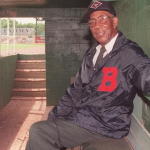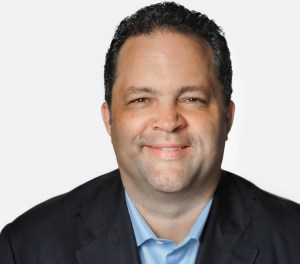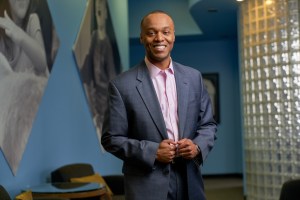The Rev. Bill Greason was a premier pitcher on the 1948 Birmingham Black Barons, a teammate of a wide-eyed 17-year-old outfielder named Willie Mays. (FILE}
” data-medium-file=”https://www.birminghamtimes.com/wp-content/uploads/2024/06/BillGreason-1-300×179.png” data-large-file=”https://www.birminghamtimes.com/wp-content/uploads/2024/06/BillGreason-1-1024×612.png” />
By John Shea
National Baseball Writer
America needs to know about Bill Greason.
We need to know that he was the first Black pitcher on the St. Louis Cardinals, five years before Bob Gibson. We need to know he fought at the Battle of Iwo Jima during World War II. We need to know he has served as a minister in Birmingham, Ala., for more than a half-century and is still preaching.
We need to know that Rev. Bill Greason, 99, is an American hero and one of the reasons Major League Baseball is putting on the June 20 game at Birmingham’s Rickwood Field to honor Negro Leaguers who played at the historic site. Greason plans to be in attendance and fittingly will be honored during ceremonies.
“I’ve just been blessed,” Greason said in an interview with the San Francisco Chronicle. “My mom taught me a paradox, the way up is down. I said, ‘what does that mean?’ She said, ‘if you exalt yourself, you’ll be brought down, but if you humble yourself, you’re in a safe spot.’ I lived with that, and I still do. All of my life.”
The San Francisco Giants will play Greason’s old team, the Cardinals, but the game — “MLB at Rickwood: a Tribute to the Negro Leagues” — is more about honoring those who played at Rickwood during baseball segregation and the early years of integration when MLB permitted very few Blacks into its league.
Greason was a premier pitcher on the 1948 Birmingham Black Barons, a teammate of a wide-eyed 17-year-old outfielder named Willie Mays. They were rookies together and influential pieces on a storied team that played in the final Negro World Series.
That’s just a fraction of Greason’s story. He’s seven years older than Mays, born Sept. 3, 1924. By the time he and Mays were teammates in 1948, Greason had already served in the all-Black 66th Supply Platoon with the 34th Marine Depot Company, which landed on Iwo Jima in February 1945.
The bloody five-week battle resulted in more than 26,000 American casualties including 6,800 dead, according to the U.S. Department of Defense. Among Greason’s duties was unloading supplies and ammunition from ships to shore, but he also made himself available to fellow Marines in need. One of his worst days was losing men close to him, one of whom he tried to help even if it meant disobeying an order.
“Two of my best friends were killed there,” Greason said. “I could have been court-martialed by helping one. He got hit. He was calling on me. I called three other Marines. We got a stretcher and got him down to the beach. The C.O. at that time had told us don’t leave until he had called the corpsman, but that was my buddy, and I didn’t mind whatever the results would be. I think he lived a couple of days after that.”
Tremendous Blessing
Following the war, Greason worked his way to the Black Barons a year after Jackie Robinson broke MLB’s color barrier. There was new hope for African American ballplayers, at least for budding superstars like Mays. Rickwood became a real-life field of dreams, and the 1948 Black Barons went on to have a historic season.
“It was great,” Greason said. “Having come out of the service at an early age and not be wounded, it was just a tremendous blessing to be able to be a part of the beginning of something that was good.”
With an effective fastball/curveball combination, Greason helped anchor Birmingham’s rotation, while an injury to Norm Robinson allowed Mays — still a student at Fairfield Industrial High School — to take over center field. Birmingham beat the Kansas City Monarchs in the Negro American League championship series, Greason pitching all nine innings in the clincher, a 5-1 win that he said was “one of the highlights of my life.”
In the World Series, which the Black Barons dropped in five games to the Homestead Grays, Greason and Mays contributed to Birmingham’s only victory in Game 3. Greason pitched the final two innings for the win and scored the deciding run on Mays’ game-ending single with two outs in the ninth.
That would be the last Negro World Series. With Robinson and other Blacks joining MLB teams in the late 1940s, interest in the Negro Leagues began to fade. Greason and countless others continued to play ball and maintain hope amid the ongoing racism that had forced Black players to create their own leagues.
“We tried to be an example for those who would follow us — don’t mind people calling you out of your name and calling you different names, just don’t be that. Just be yourself,” said Greason, who grew up in Atlanta on Auburn Avenue, a neighbor of a young Martin Luther King Jr. “We realized we would not only be recognized as Black or Negro ballplayers, but we were representing our race with the abilities that we had and how we carried ourselves.”
The Majors
While Mays signed with the New York Giants in 1950 after his high school graduation, Greason was detoured again when he was recalled to active military duty during the Korean War. He finally got his break and joined the Cardinals’ system, opening the 1954 season in the minors, the same year the Cardinals finally integrated with first baseman Tom Alston.
Greason was called up to St. Louis in late May but never got a fair shake. He struggled to find a throwing partner among the white players, and his manager, Eddie Stanky (Mays’ former teammate in New York), had no patience with him. Greason got into just three games and pitched a total of just four innings before he was shipped back to the minors, never to appear in the majors again.
“My manager at the time was from down in Mobile, Eddie Stanky,” Greason said. “I didn’t hardly have anybody to play catch with. I didn’t do too well, and he rushed out there and cursed me, and I cursed him back. Eddie Stanky, you know, that didn’t go well, a Black talking back to a white man, especially in the South. So from then on, I was just there.”
Greason pitched a scoreless inning against the Giants in his final MLB game, but didn’t face Mays. Greason reunited with Mays after the season when both played, along with Roberto Clemente, on a stacked Puerto Rican winter league team that won the Caribbean Series.
Called To The Ministry
Pitching in the minors and winter ball through 1959, Greason eventually followed his calling to the ministry. He had vowed on Iwo Jima that if he got off the island alive, he would do whatever God wanted. He studied religion and became a preacher at the 16th Street Baptist Church, where Civil Rights leaders (including King) met and where four young girls were killed in 1963 by a bomb planted by the Ku Klux Klan.
Greason used his position in the church to fight for civil rights in Birmingham, the most segregated city in the country. Notoriously racist police and fire chief Bull Connor used police dogs and fire hoses on protesters, and the national disgust
Greason has been pastor of Bethel Baptist Church in Birmingham for more than a half century and still preaches on Sundays.
“In the ministry, everybody’s not called by God to be a preacher,” Greason said. “When you get called, you accept whatever gifts they’re going to give you, and you try to help as many people as you can. That’s been my life. I love helping people. I never tried to seek any recognition. I just did what I had to do.”
In 2012, Greason received a Congressional Gold Medal, one of the nation’s highest civilian honors, along with others among the heroic Montford Point Marines who trained at a segregated training base in North Carolina and became the first African Americans to serve in the Marines.
Greason remains a close friend of Mays and talks with him regularly. Asked whether he had advice for others, Greason said, “Just try to be decent and live decent and be a helper, not a hurter, and stay humble. Don’t try to be like other people. Just be yourself and stay with God and let him be your guide.”
Reach John Shea, National Baseball Writer, San Francisco Chronicle, for more columns: jshea@sfchronicle.com; X/Twitter: @JohnSheaHey











